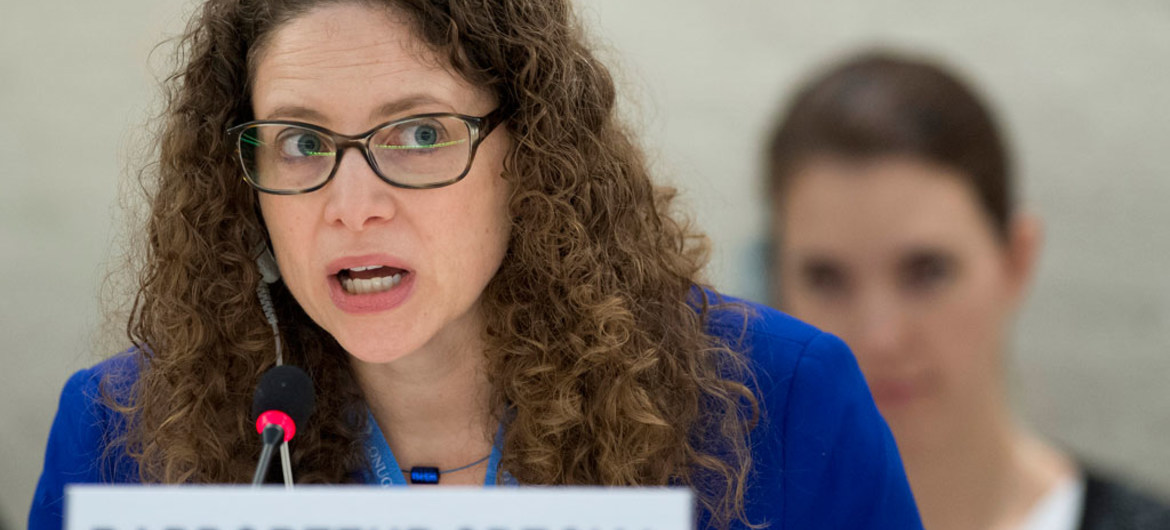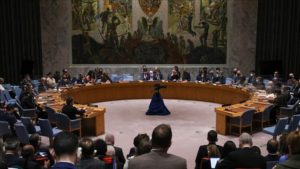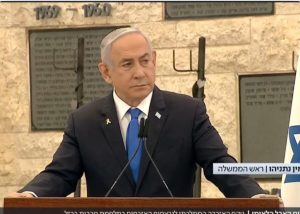Haifa,MINA — Following a special request for action issued by Adalah – The Legal Center for Arab Minority Rights in Israel, four United Nations special rapporteurs have given Israel a 60-day deadline to respond to their grave concerns regarding the Jewish Nation-State Law, adopted by the Israeli parliament, the Knesset, on July 19, WAFA reported.
The 60-day period began on November 2 when UN Special Rapporteur in the field of cultural rights Karima Bennoune, Special Rapporteur on the situation of human rights in the Palestinian territories occupied since 1967 Michael Lynk, Special Rapporteur on minority issues Fernand de Varennes, and Special Rapporteur on contemporary forms of racism, racial discrimination, xenophobia and related intolerance E. Tendayi Achiume sent a communiqué to Israeli authorities expressing their deep concerns regarding the impact of the new law.
Also Read: Israel Welcomes UNSC Gaza Resolution, Opposition Criticizes Deal
In their letter, the special rapporteurs expressed “deep concern” that the Israeli Basic Law appears “to be discriminatory in nature and in practice against non-Jewish citizens and other minorities and does not apply the principle of equality between citizens, which is one of the key principles for democratic political systems.”
Adalah, representing all of the Arab political leadership in Israel – The High Follow-up Committee for Arab Citizens in Israel, the Joint List (Arab members of the Knesset), and the National Committee for Arab Mayors, filed a petition against the Jewish Nation-State Basic Law on August 7 to the Israeli Supreme Court. The petition demands that the Court cancel the law as it contradicts fundamental international human rights norms in place since the end of World War II; negates almost 20 years of Supreme Court case law concerning the right to equality and land rights; and constitutes an abuse of power by the majority in the Knesset.
The special rapporteurs emphasize that they fear that “the law as adopted offers a legal basis for the pre-eminence of Jewish people over non-Jewish citizens who are members of other ethno-religious and linguistic minority groups, and creates a legal order and an environment that could potentially lead to further discriminatory legislative and/or policy actions, which contravene the international human rights obligations of Israel.”
The special rapporteurs further expressed concern, in light of the Nation-State Law, regarding Israel’s commitments to the International Covenant on Civil and Political Rights and the International Covenant on Economic, Social and Cultural Rights which both stipulate the right of all peoples to self-determination.
Also Read: Hamas Rejects International Forces in Gaza
Amongst a more extensive series of requests, the special rapporteurs called on Israel to:
“Indicate the impact of Article 5 of the Law on the current immigration procedures in Israel, on how Jewish and non-Jewish immigrants are dealt with under current procedures, and how such provision may affect the immigration status determination of non-Jews”;
“Provide further information on Article 7, and particularly whether it will or not contribute to potential segregation on the basis of ethnicity or religion, and whether it is an endorsement to develop Jewish settlements, including in the Occupied Palestinian Territory, in direct violation of international law”;
“Clarify the consequences of the new status of the Arabic language, and the impact if any on its use for official purposes, including on public signs, in public institutions including social and health services and in the education system.”
Also Read: UN Says Israel Blocking Vital Tent Deliveries to Gaza
The special rapporteurs noted that the State of Israel failed to respond to an earlier query sent 21 June 2017 by the UN special rapporteurs concerning a draft bill of what was to eventually be adopted as the Jewish Nation-State Law.
Any response Israeli authorities may send to the special rapporteurs will be provided to the United Nations Human Rights Council for consideration. (T/RS5/RS1)
Mi’raj Islamic News Agency (MINA)
Also Read: 98 Palestinian Detainees Have Died in Prisons Since Gaza War Began



































 Mina Indonesia
Mina Indonesia Mina Arabic
Mina Arabic